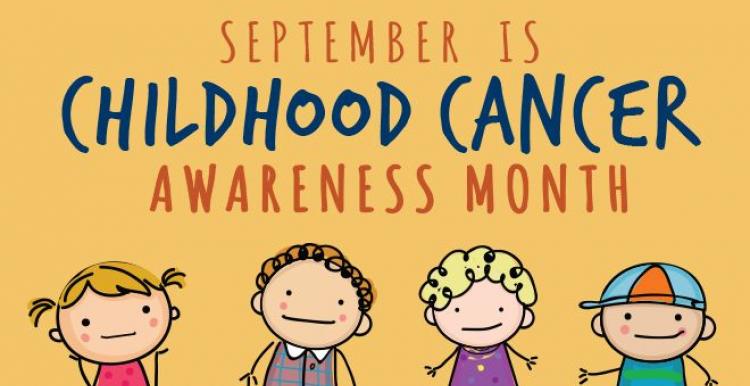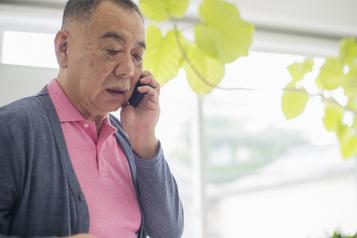Childhood Cancer Awareness Month

About 1,900 children (up to the age of 15) in the UK are diagnosed with cancer each year. These cancers can be quite different from cancers affecting adults.
They tend to occur in different parts of the body to adult cancers. They also look different under the microscope and respond differently to treatment. In the UK, around 2,200 teenagers and young adults (15-24 years old) are diagnosed with cancer every year.
Cure rates for children are much higher than for most adult cancers. The survival rate for children’s cancer has more than doubled since the 1960s. More than 8 in 10 children in England survive their cancer for 5 years or more (all cancers combined); but some cancer groups and cancer types have much lower survival.
Could my child have cancer?
Cancer symptoms depend on the type of cancer and where it is in the body. They can also be quite vague, varied and are usually caused by something other than cancer. It is important to be aware of the signs and symptoms of cancer as the earlier cancer is diagnosed, the more successful treatment might be.
The most common cancer types in children are leukaemia (30%), brain and spinal tumours (26%) and lymphomas (11%). Almost 50% of all cases of childhood cancer are in children aged 0-4 years old.
Most common cancer signs and symptoms in children and young people
Identifying cancer in children is difficult as symptoms can be the same as for many childhood illnesses, viruses and conditions. Children generally recover quite quickly from illnesses so it may be that a child simply does not get better as quickly as they should and this needs investigating.
Some general common symptoms are:
- Feeling very tired and exhausted all of the time and/or noticeable skin paleness
- Having lots of infections (such as ear, throat or chest) that don't go away or keep coming back
- Having flu-like symptoms that don't go away (such as lethargy, high temperature, being sick)
- Unexplained or excessive bleeding such as in urine, poo or when being sick
- Bruising easily or a rash of small red spots on the skin (called 'petechiae')
- Persistent and unexplained sweating or fever especially at night
- Aches and pains that don't go away, especially in the bones, joints, back or legs, and may be worse at night
- Unexplained new limp or leg weakness
- Changes when going for a poo such as constipation, diarrhoea, pain or feeling of not having finished
- Feeling a lump, swelling or unusual firmness anywhere on the body, especially in the abdomen, neck, chest, pelvis or armpits
- Losing a significant and unexplained amount of weight in teenagers
- Slow growth in children
- Change in behaviour such as persistent crying and screaming in young children, sleeping a lot, being off food
Brain tumours can be particularly hard to diagnose and can cause a number of different symptoms including persistent headaches, dizziness, seizures, clumsiness and being sick when waking up in the morning. A routine eye test by an optician can sometimes detect warning signs of pressure build-up at the back of the eye as a result of a brain tumour. If you are worried that your child has a brain tumour, read HeadSmart's list of possible symptoms affecting different age groups.
Eye cancer (known as retinoblastoma) usually affects young children under the age of six years old with symptoms such as a white glow in the eye (usually seen in photos) or other eye changes. If you are worried that your child has retinoblastoma, read CHECT's list of symptoms for further information.
More information about specific symptoms for each cancer type
What do I do if I think my child has cancer?
Most parents report having a gut feeling or instinct that something wasn't right with their child so it is important that your concerns are listened to. This is why parental concern is now listed as a high priority for GPs to consider when referring a child or young person to hospital for suspected cancer.
If you are worried about your child, make an urgent appointment to see your GP. Make a list of your child's symptoms, when they started, whether they are getting worse and why you suspect it might be cancer. Your GP will then talk through your concerns with you and make a clinical judgement as to the next step forward.
Your child will either be referred to your local hospital for tests to find the cause of the symptoms (this may happen immediately or within 48 hours) or you will be advised to bring your child back to see the GP again if symptoms persist. Your child will then be referred if the problem doesn't go away over time or gets worse.
You know your child best. If you still have concerns or are worried about your child in any way, revisit your GP to see whether a referral is needed. If your child becomes very ill at any point or you become increasingly concerned, then it is advised to take them to your nearest children's A&E hospital department for urgent assessment.
For more information
If you need any additional information, advice, or resources, visit the Children's Cancer & Leukemia Group website.


